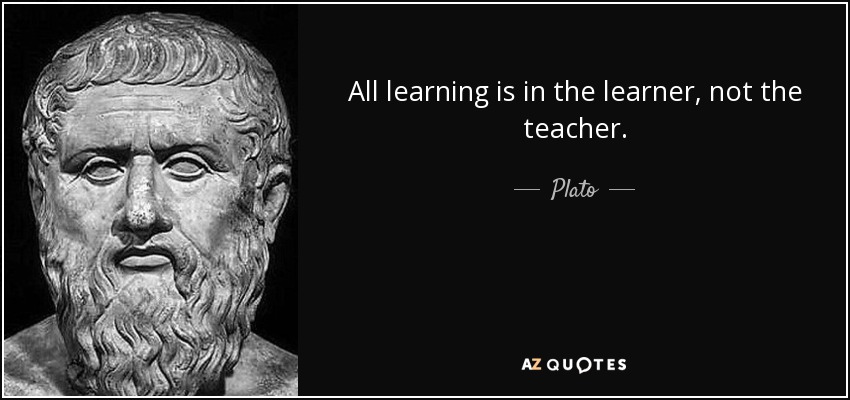|
박희춘 목사
(Homepage) |
2018-03-18 22:16:45, 조회 : 9,105, 추천 : 1842 |
- SiteLink #1 : https://plato.stanford.edu/entries/plato-rhetoric/
- SiteLink #2 : http://classics.mit.edu/Plato/gorgias.html
- Download #1 : Plato_1.jpg (63.8 KB), Download : 52

- Download #2 : Plato__Phaedrus.pdf (136.0 KB), Download : 51

플라톤은 그의 대표적 수사학적 저술, 대화록인 Gorgias와 Phaedrus에서 참된 수사학과 거짓된 수사학에 대해
논의합니다. 플라톤은 소피스트들의 수사학을 거부하고 참된 수사학은 변증법 Dialectic에 근거하여야 한다고 주장합니다. 고르기아스와 파에드루스를 영어 원문으로 읽으시기 위해서 위의 링크 2와 다운로드 2로 가시면 됩니다.
그리고 또 하나 중요한 플라톤의 수사학적 저술은 Meno입니다. 새설교학운동의 크래독도 이 메노의 교육철학적 영향을
받은 기독교 설교학, 기독교 수사학이라고 할수 있습니다. 청중으로 하여금 스스로 깨닫도록 설교자가 돕는 역활을
산파러첨 해야한다는 것입니다. 아래의 주소를 복사하셔서 주소창에 넣으시면 됩니다.
https://www.staff.ncl.ac.uk/joel.wallenberg/ContextsJoelGeoff/meno.pdf
Plato (427–347 BC) famously outlined the differences between true and false rhetoric in a number of dialogues; particularly the Gorgias and Phaedrus dialogues wherein Plato disputes the sophistic notion that the art of persuasion (the sophists' art, which he calls "rhetoric"), can exist independent of the art of dialectic. Plato claims that since sophists appeal only to what seems probable, they are not advancing their students and audiences, but simply flattering them with what they want to hear. While Plato's condemnation of rhetoric is clear in the Gorgias, in the Phaedrus he suggests the possibility of a true art wherein rhetoric is based upon the knowledge produced by dialectic, and relies on a dialectically informed rhetoric to appeal to the main character, Phaedrus, to take up philosophy. Thus Plato's rhetoric is actually dialectic (or philosophy) "turned" toward those who are not yet philosophers and are thus unready to pursue dialectic directly. Plato's animosity against rhetoric, and against the sophists, derives not only from their inflated claims to teach virtue and their reliance on appearances, but from the fact that his teacher, Socrates, was sentenced to death after sophists' efforts.
----------------------------------------------------------------------
스탠포드 철학사전에서 소개하는 플라톤의 수사학과 시학에 대한 서론적 소개입니다.
플라톤의 수사학에 대하여 쉽게 전반적인 이해를 빨리하게 도와줍니다.
아래 두번째 패러그라프의 목차에서 플라톤의 수사학적 저술 전체를
지도와 같이 쉽게 이해하고 위의 링크 1 웹사이트로 가시면 자세하게 개론적으로
읽으실수 있습니다.
Plato on Rhetoric and Poetry
First published Mon Dec 22, 2003; substantive revision Thu Feb 4, 2016
Plato's discussions of rhetoric and poetry are both extensive and influential. As in so many other cases, he sets the agenda for the subsequent tradition. And yet understanding his remarks about each of these topics—rhetoric and poetry—presents us with significant philosophical and interpretive challenges. Further, it is not initially clear why he links the two topics together so closely (he suggests that poetry is a kind of rhetoric). Plato certainly thought that matters of the greatest importance hang in the balance, as is clear from the famous statement that “there is an old quarrel between philosophy and poetry” (Republic, 607b5–6). In his dialogues, both this quarrel and the related quarrel between philosophy and rhetoric amount to clashes between comprehensive world-views—those of philosophy on the one hand, and of poetry or rhetoric on the other. What are these quarrels about? What does Plato mean by “poetry” and “rhetoric”? The purpose of this article is to analyze his discussions of rhetoric and poetry as they are presented in four dialogues: the Ion, the Republic, the Gorgias, and the Phaedrus. Plato is (perhaps paradoxically) known for the poetic and rhetoric qualities of his own writings, a fact which will also be discussed in what follows.
1. Introduction
2. Ion
3. Republic, Books II, III, X
3.1 Republic II
3.2 Republic III
3.3 Republic X
3.4 Concluding Observations about the Republic's “quarrel”
4. Gorgias
5. Phaedrus
5.1 Rhetoric in the Phaedrus
5.2 Rhapsodes, Inspiration, and Poetry in the Phaedrus
6. Plato's Dialogues as Rhetoric and Poetry
|
|
|


